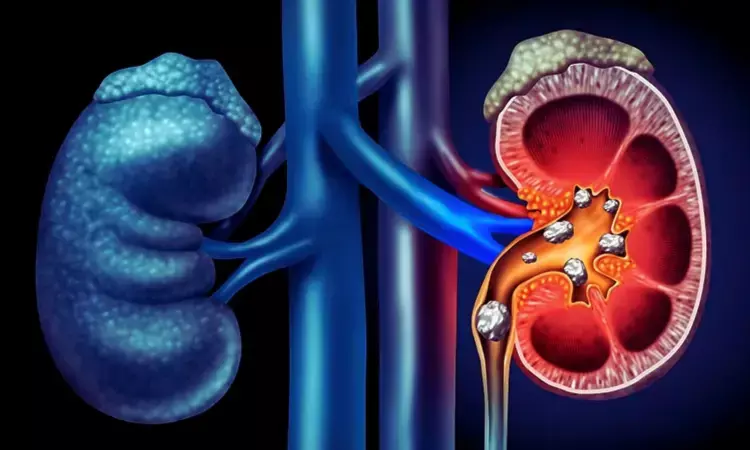- Home
- Medical news & Guidelines
- Anesthesiology
- Cardiology and CTVS
- Critical Care
- Dentistry
- Dermatology
- Diabetes and Endocrinology
- ENT
- Gastroenterology
- Medicine
- Nephrology
- Neurology
- Obstretics-Gynaecology
- Oncology
- Ophthalmology
- Orthopaedics
- Pediatrics-Neonatology
- Psychiatry
- Pulmonology
- Radiology
- Surgery
- Urology
- Laboratory Medicine
- Diet
- Nursing
- Paramedical
- Physiotherapy
- Health news
- Fact Check
- Bone Health Fact Check
- Brain Health Fact Check
- Cancer Related Fact Check
- Child Care Fact Check
- Dental and oral health fact check
- Diabetes and metabolic health fact check
- Diet and Nutrition Fact Check
- Eye and ENT Care Fact Check
- Fitness fact check
- Gut health fact check
- Heart health fact check
- Kidney health fact check
- Medical education fact check
- Men's health fact check
- Respiratory fact check
- Skin and hair care fact check
- Vaccine and Immunization fact check
- Women's health fact check
- AYUSH
- State News
- Andaman and Nicobar Islands
- Andhra Pradesh
- Arunachal Pradesh
- Assam
- Bihar
- Chandigarh
- Chattisgarh
- Dadra and Nagar Haveli
- Daman and Diu
- Delhi
- Goa
- Gujarat
- Haryana
- Himachal Pradesh
- Jammu & Kashmir
- Jharkhand
- Karnataka
- Kerala
- Ladakh
- Lakshadweep
- Madhya Pradesh
- Maharashtra
- Manipur
- Meghalaya
- Mizoram
- Nagaland
- Odisha
- Puducherry
- Punjab
- Rajasthan
- Sikkim
- Tamil Nadu
- Telangana
- Tripura
- Uttar Pradesh
- Uttrakhand
- West Bengal
- Medical Education
- Industry
What are Key Risk Factors for Postop Infections in Negative Pressure Retrograde Intrarenal Surgery for Kidney Stones?

China: A recent study has delved into the postoperative infection factors associated with retrograde intrarenal surgery (RIRS) combined with negative pressure equipment for treating renal stones.
The findings, published in Scientific Reports, indicated that three variables consistently served as independent risk factors for postoperative infection complications. Notably, the infection rate following a combination of negative pressure equipment and RIRS (NP-RIRS) was lower than TRIRS for kidney stones.
"The length of the stones, the duration of the surgery, and the CT value of the stones were identified as independent risk factors for infections in patients treated with NPRIRS. However, the small sample size limits the credibility and generalizability of these conclusions," the researchers wrote.
Guoqiang Chen, Department of Urology, The Second Hospital of Longyan, Longyan, Fujian, China, and colleagues aimed to retrospectively analyze patients who received treatment for renal stones using a combination of negative pressure equipment and retrograde intrarenal surgery, identifying new high-risk factors associated with infection.
For this purpose, the researchers examined 456 patients with renal stones measuring 3 cm or less who underwent NP-RIRS in their department between January 2022 and October 2023. The patients were categorized into two groups: the non-infection group (NIRIRS) and the infection group (IRIRS), based on the occurrence of infection complications during the perioperative period.
They established a receiver operating characteristic (ROC) curve using variables that showed statistical differences and employed the Youden index to determine the optimal cutoff value. The data were then classified into two categories based on this cutoff, and binary logistic regression analysis was conducted on the classified data.
The study led to the following findings:
- In the IRIRS group, there were ten instances of fever and 2 cases of sepsis, with no occurrences of septic shock or fatalities.
- The length of the stones and their CT values were significantly different, measuring 16 mm versus 22 mm and 764 HU versus 1372 HU, respectively.
- The surgical times differed significantly between the NIRIRS group and the IRIRS group, recorded at 57 minutes versus 75 minutes.
- The stone-free rate (SFR) three months post-surgery was 97.60% for NIRIRS compared to 91.70% for IRIRS, indicating no significant difference.
- The length of stones, surgical duration, and CT values were further analyzed using ROC curves, resulting in areas of 0.791, 0.791, and 0.816, respectively.
- Based on the Youden index, the optimal cutoff values identified were 17.5 mm for stone size, 64.5 minutes for surgical time, and 732.5 HU for stone CT value. These three continuous variables were then converted into binary data using the best cutoff criteria, and the classified results underwent binary logistic regression analysis.
The authors concluded that infection incidence following NPRIRS was lower than that observed with TRIRS for kidney stones. They identified the length of the stones, surgical time, and CT value of the stones as independent risk factors for postoperative infection in NPRIRS treatment. However, they also noted that the small sample size limited the credibility and generalizability of these findings.
Reference:
Cui, D., Ma, Q., Zhang, Q., Zhang, L., & Chen, G. (2024). Analysis of postoperative infection factors of retrograde intrarenal surgery combined with negative pressure equipment for renal stones. Scientific Reports, 14(1), 1-8. https://doi.org/10.1038/s41598-024-75073-1
Dr Kamal Kant Kohli-MBBS, DTCD- a chest specialist with more than 30 years of practice and a flair for writing clinical articles, Dr Kamal Kant Kohli joined Medical Dialogues as a Chief Editor of Medical News. Besides writing articles, as an editor, he proofreads and verifies all the medical content published on Medical Dialogues including those coming from journals, studies,medical conferences,guidelines etc. Email: drkohli@medicaldialogues.in. Contact no. 011-43720751


